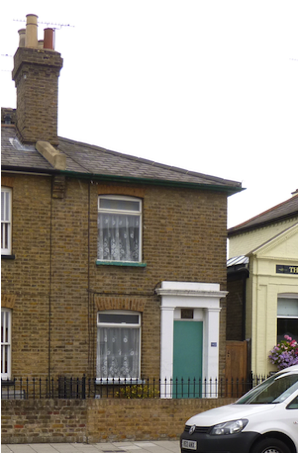William Clark was born and raised in Brightlingsea before coming to Chelmsford before the war. He married and then joined the army, losing his life during the Battle of the Somme in September 1916. His family home was in Moulsham Street.
CLARK, WILLIAM*,
Rifleman, 1/9th Battalion, London Regiment (Queen Victoria's Rifles)
(formerly of the Essex Regiment)
William served as Rifleman 6605 in the 1/9th Battalion of the London Regiment (Queen Victoria's Rifles). having previously served in the Essex Regiment. Aged 35, he was killed in action on 25th September 1916. He has no known grave and is commemorated on the Thiepval Memorial, Somme, France.
On 22nd December 1916 the Essex Weekly News reported:
“Mrs. Clark of 142, Moulsham-street, has received information from the War Office that her husband, Rifleman William. Clark, London Regt., formerly of the Essex Regt., was killed in action on Sept 25. He was a native of Brightlingsea, but had resided in Chelmsford for the past five years. He leaves a widow, but no family.”
A week later the Essex County Chronicle carried a similar report:
“Mrs. Clark of 142 Moulsham Street, Chelmsford, has received information from the War Office that her husband, Rfn. Wm. Clark, London R., formerly Essex R., was killed in action on Sept 25. He was a native of Brightlingsea, but had resided in Chelmsford for the past five years. He leaves a widow, but no family.”

William was born in 1877, the son of James Clark and Sarah Clark (formerly Weavers). His parents were both born in Brightlingsea and married in 1870..
In 1881 the census recorded three year-old William living with his parents, four siblings and a step brother at Cooks Lane, Brightlingsea. His father was an agricultural labourer. A decade later 14 year-old William was listed by the census working as an agricultural labourer and still resident at Cooks Lame. He was accompanied by his parents and gour siblings. His father was also an agricultural labourer.
He came to live in Chelmsford around 1911 and was recorded by the census of that year boarding at 38 Wood Street (later renumbered as 122 and later still replaced by flats). His landlord was Maurice Spearman who worked at the nearby Wood Street Pottery and Brick Works.
Three years later William married Amelia Matthews, the daughter of James and Ellen Matthews. Her father was the manager of the Wood Street Pottery and Brick Works, having previously carried out similar work in Kent.
In 1916 his wife was resident at 142 Moulsham Street, Chelmsford - the house neighbouring the Cricketers’ Inn.

William’s name is not one of the 359 remembered by the Civic Centre Memorial, Chelmsford, nor was he commemorated by the war memorial at St. John’s Church, Moulsham. He was entitled to the British War Medal and Victory Medal.